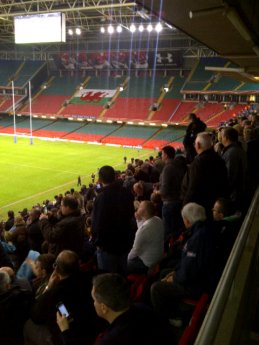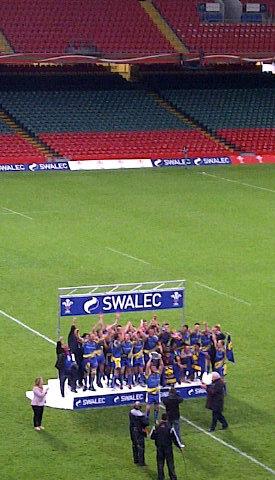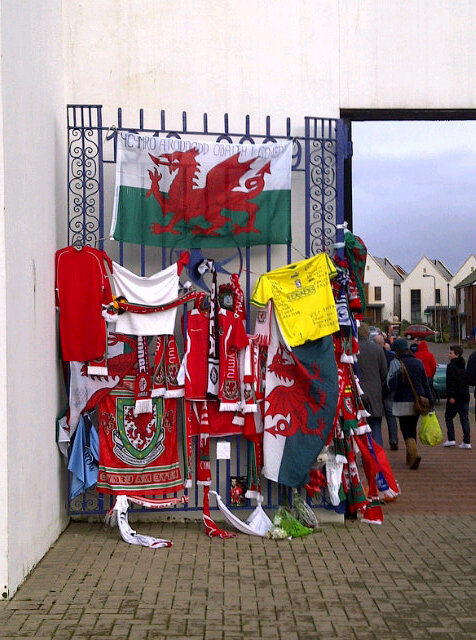London Welsh will appeal against the decision by the Rugby Football Union to deny them promotion should they triumph in the two-legged Championship play-off final over the Cornish Pirates.
Yesterday the Exiles secured a stunning 37-21 win over the favoured Pirates in the away leg at Mennaye Field. The home leg, to be played at Oxford United’s Kassam Stadium, which Welsh had planned to use had they been granted leave to play in the Aviva Premiership, is next Wednesday evening.
Welsh’s 16-point advantage going into the home leg makes their appeal against the RFU’s decision all the more pertinent. And they have received support from a cross section of rugby players and journalists in their bid to change the RFU’s mind.
- The Daily Telegraph‘s respected rugby writer Brendan Gallagher blames the Premiership sides for forcing the RFU’s hand, calling the decision “gross hypocrisy”. To give a (lengthy) sample:
How dare they criticise London Welsh. Who do Premiership Rugby think they are? Have they completely forgotten recent history? At various times Harlequins and Northampton have rightly been relegated to Division One but prospered massively from the experience and bounced back as model teams. How dare Premiership Rugby, via the RFU, attempt to deny that to other equally ambitious rugby clubs. How dare they be judge and jury when the only people benefitting is their self-appointed elite. It is so against everything Rugby Union stands for as to be laughable, which they will quickly discover if this London Welsh situation is allowed to go any further. A natural process of promotion and relegation should always decide who the elite are. Two years ago, Exeter’s promotion was greeted with guffaws around the League, and predictions of their instant relegation and humiliation. Well how wrong were Premiership Rugby on that.
- Gallagher’s Telegraph colleagues Brian Moore and Rupert Bates have both tweeted their support for his article:
How dare Premiership Rugby criticise London Welsh- a fine rant by Brendan Gallagher on Premiership hypocrisy soc.li/IGxzpge
— Brian Moore (@TAFKAbrianmoore) May 24, 2012
The words “hear” and “hear” spring to mind. Read @gallagherbren on London Welsh #rugby story tinyurl.com/c3cgco7
— Rupert Bates (@rupertbates) May 24, 2012
- London Welsh coach Lyn Jones said: “The players feel it’s a negative move for English rugby. That channel to promotion needs to be open at all times for all sides. It’s just a shame the union has complicated that. There’s a big buzz in Oxford about the possibility of Premiership rugby being played there.”
- Welsh international Ryan Jones said:
so @LondonWelshRFC don’t meet the magical RFU criteria for the top flight, shame as I’m sure they’d be a wonderful addition! #itsnotoveryet
— Ryan P Jones (@RyanJonesOnline) May 24, 2012
- Former England captain Will Carling, admittedly not the RFU’s biggest fan, also weighed in:
A very well worded statementlondon-welsh.co.uk/rugby_newsroom…seems to endorse the ‘cartel’ theory of the premiership……#rugby
— Will Carling (@willcarling) May 24, 2012
- Even away from the world of rugby, there was support for London Welsh. Comedian Mark Watson tweeted a response to Brian Moore:
@TAFKAbrianmoore @premrugby Dear Premiership. As a neutral, you absolutely have to let London Welsh go up. Or the whole league looks silly.
— Mark Watson (@watsoncomedian) May 24, 2012







